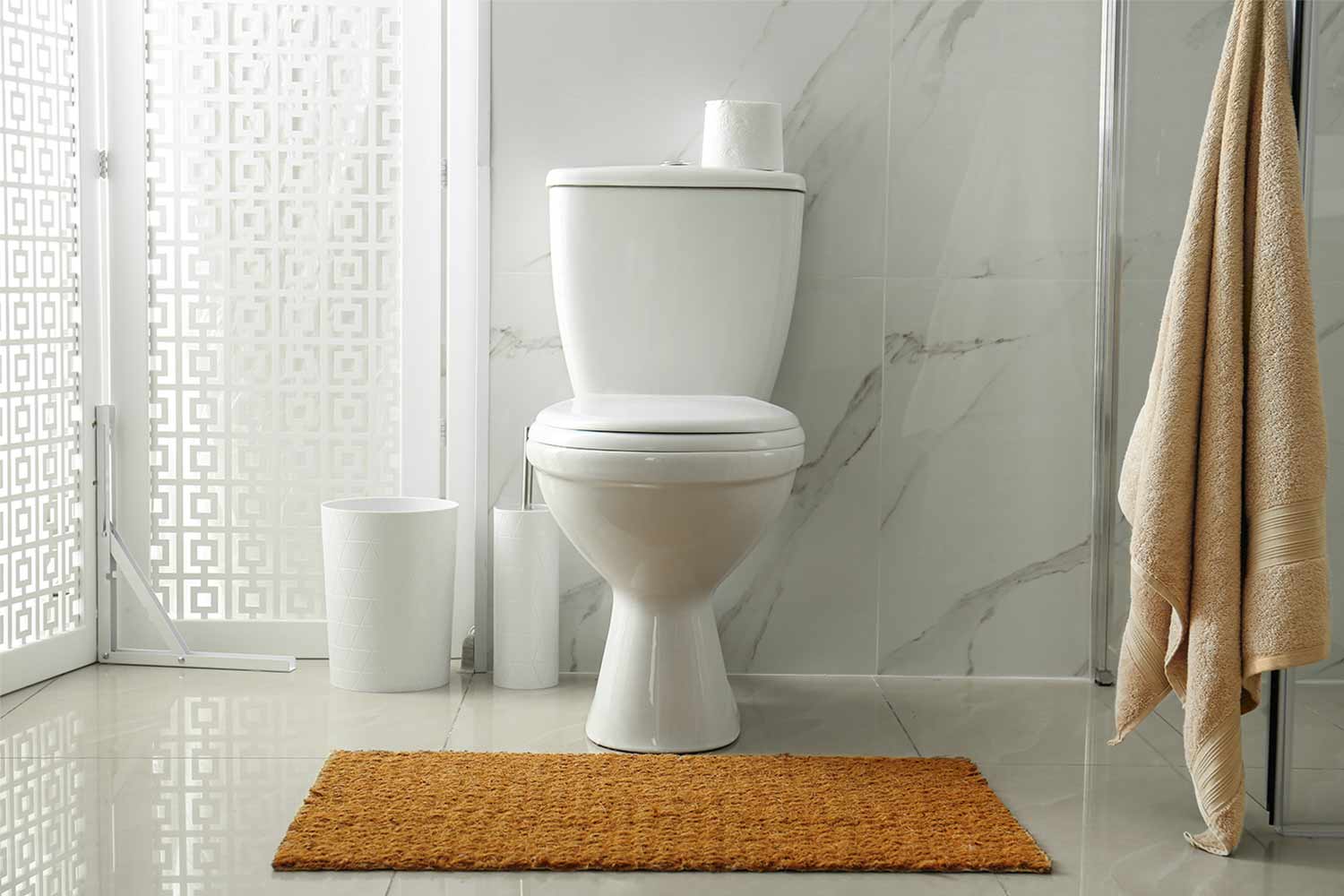
Need to prevent sewer backflow on your property? Explore the factors of backflow preventer installation cost, including device types and common add-ons.
Sewer line replacement in Columbus, OH costs $3,862 on average, but it can range between $2,544 and $5,344, depending on pipe material.


Sewer replacement costs in Columbus range between $50 and $300 per linear foot, depending on the material you choose.
PVC sewer pipes are the most popular choice among Columbus homeowners, ranging from $550 to $120 per linear foot, including installation.
Columbus homeowners should budget $75 to $200 per hour for hiring professionals for a sewer line project, with labor accounting for 50% of the total cost.
Plan to spend at least $130 on sewer line replacement permits from the city.
Average sewer line replacements in Columbus range from $2,544 to $5,344, with most homeowners spending an average of $3,862. With Columbus’s cost of living sitting 5% below the national average, both sewer line materials and replacement labor tend to be more affordable here than in other parts of the U.S.
The main factors impacting the cost of homeowners’ sewer line replacement in Columbus are project complexity, pipe material, pipe length, and labor.
How much you’ll pay for a sewer line replacement in Columbus, Ohio, depends on a variety of factors. Here’s a closer look at how your total breaks down.
The most common pipes used for sewer lines are PVC (the most budget-friendly option), ABS (the mid-range option), cast iron (higher-end), and copper (the most expensive). Each has its own cost range and preferred use case scenario; however, in Columbus, PVC pipes are the most popular option for their affordability and ease of installation. Heavier cast-iron pipes are not commonly used in new Columbus homes, but are found in older properties throughout the city.
Here’s how sewer line replacement costs are affected by pipe material:
| Pipe Material | Average Cost per Linear Foot (Installed) | Pros | Cons |
|---|---|---|---|
| PVC | $50–$120 | Most common choice in Columbus; easy to install; widely available; corrosion-resistant; 50–100 year lifespan | Not as impact-resistant; can crack from ground movement |
| ABS | $60–$130 | Good impact resistance; stronger than PVC for similar price; 50–70 year lifespan | Not as universally accepted; less thermal stability than PVC |
| Cast iron | $120–$250 | High-load bearing capacity; durable; 50–100 years | Not common in new Columbus homes; can rust; more expensive option; can become blocked by mineral buildup; heavy |
| Copper | $150–$300 | Durable; corrosion-resistant; 50+ year lifespan | Most expensive option; not as commonly used for sewer laterals |
The cost of running a new sewer pipe ranges from $50 to $250 per linear foot, with an average price of $150 per linear foot, which includes both materials and labor. When replacing the sewer line from your house to the main, the distance depends on your specific neighborhood and property, but an average of 40 feet is a reasonable estimate to help you determine your budget. The further your house is from the hookup, the longer the sewer pipes and the higher the costs.
Of course, the entire length of the pipe may not need to be replaced, so discuss options with your pro to get answers to all your sewer questions.
A partial replacement will be the most affordable option, with complete replacement and burst-pipe replacement ranging from $75 to $200 per linear foot. Knowing how often to clean your sewer drain can help prevent premature full replacements. Here’s how costs break down by type of sewer line replacement:
| Replacement Type | Average Cost per Linear Foot |
|---|---|
| Complete | $75–$200 |
| Partial | $50 |
| CIPP lining | $130–$150 |
| Burst pipes | $150–$190 |
In addition to the materials needed for your sewer line replacement, Columbus homeowners should consider professional labor-related costs that impact the project’s total. Here’s a closer look at the professional expenses to add to your budget.
On average, labor accounts for 50% of your total sewer line replacement costs, which includes work completed by licensed plumbers, equipment operators, general contractors, and excavation specialists. You can expect to pay between $75 and $200 per hour, depending on the Columbus sewer repair pros you hire and your project’s complexity.
The city of Columbus requires permits for sewer line replacements. Here’s a breakdown of the permit costs that you should build into your budget:
Plumbing permit: Cost varies based on project value
Sewer permit: $85
Front-Footage charge: $45 per linear foot
You may also need an inspection deposit, with a variable cost based on the value of your project. Your sewer line pro can usually handle the permitting process for you, but it’s always wise to confirm this before starting work on your project.
The combined tax in Franklin County is 8%, but you’re only required to pay tax on the materials portion of your project. Before starting your project, it’s important to ask your contractor how they structure their fees so you can budget accordingly and avoid surprises on your final invoice.
Replacing your sewer line doesn’t offer a direct financial return on investment (ROI), but it still adds value to your home by avoiding future damage costs, preventing signs of a clogged sewer line, and providing peace of mind. Many prospective homeowners value a well-maintained property, and an old or failing sewer line can negatively impact your home’s resale value. To weigh your project’s value, consider your own reduced risk of damage while living in your home, and the appeal of a well-functioning sewer line to potential buyers.
Home is the most important place on earth, which is why Angi has helped more than 150 million homeowners transform their houses into homes they adore. To help homeowners with their next project, Angi provides readers with the most accurate cost data and upholds strict editorial standards. We survey real Angi customers about their project costs to develop the pricing data you see, so you can make the best decisions for you and your home. We pair this data with research from reputable sources, including the U.S. Bureau of Labor Statistics, academic journals, market studies, and interviews with industry experts—all to ensure our prices reflect real-world projects.
Want to help us improve our cost data? Send us a recent project quote to [email protected]. Quotes and personal information will not be shared publicly.
From average costs to expert advice, get all the answers you need to get your job done.

Need to prevent sewer backflow on your property? Explore the factors of backflow preventer installation cost, including device types and common add-ons.

Roto-Rooter plumbing services can help you unclog drains, fix leaks, or provide remediation services after a flood. Learn the average cost to hire a local specialist and how they can help you.

Size, materials, and labor all determine the costs of an ejector pump replacement. Follow this guide to help you find the right ejector pump for your budget.

Cleaning out clogged or dirty septic field lines is a quick job for a seasoned pro. Learn what makes up the total cost to clean septic field lines

Septic failure is no picnic, but it needs to be addressed. We explore cost-saving and financing options for those who can’t afford a new septic system.

Wondering if an anaerobic septic system is the right choice for your home? Check out this guide to learn more about how this type of system works.